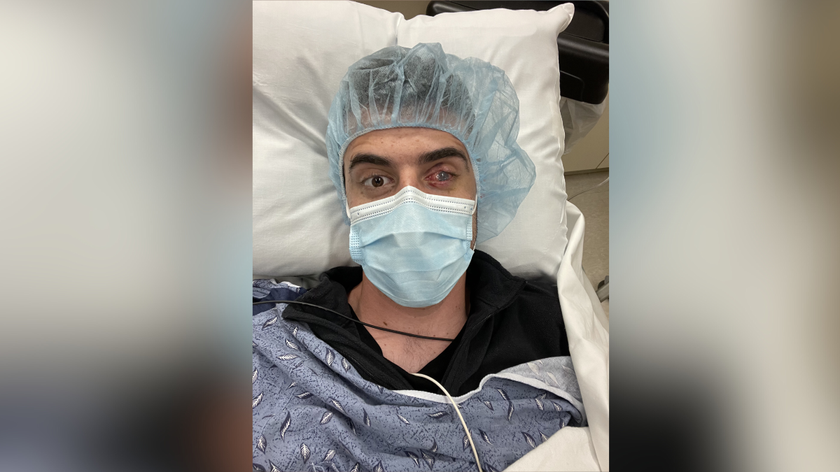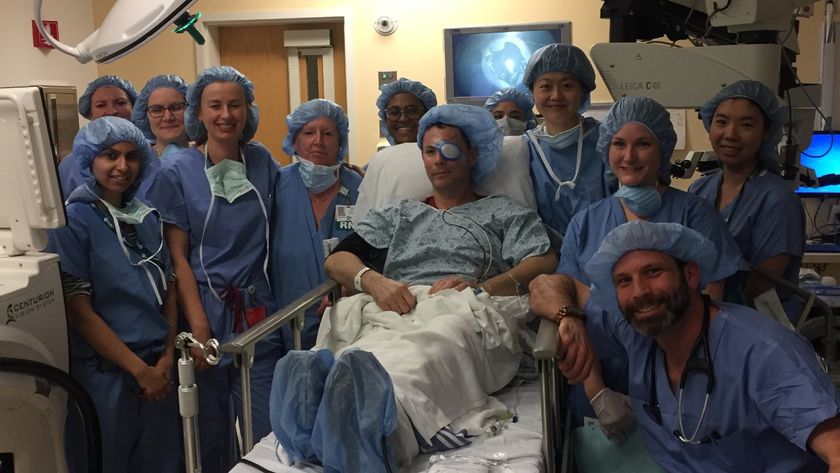The Healthy Geezer: How Can I Make My Surgery Safer?
Question: I'm having surgery and I'm afraid that the doctor will operate on the wrong side of my body. Is there anything I can do to prevent this?
Absolutely. Ask your surgeon to mark the site of the operation. Some surgical organizations recommend that their members use a marking pen on patients. Don't be reluctant to request this service to make your surgery safe.
Every year, more than 15 million Americans have surgery. The process of surgery from the initial questions to the recovery is complex. Probably the most important decision to be made is the choice of surgeon.
The American College of Surgeons (ACS) recommends that you look for a surgeon who is board certified and a fellow of the college.
Specialty boards certify physicians who meet published standards. For physicians to become board certified in a surgical specialty, they must complete the required years of residency training in that specialty, and then pass a comprehensive examination.
The specialty boards issue certificates that are valid for six to ten years. To retain certification, physicians must become recertified and must show continuing education in their specialty.
Fellows of the ACS are board-certified surgeons whose education, training, professional qualifications, surgical competence, and ethical conduct have been found to be consistent with the college's standards. The letters FACS after a surgeon's name stands for Fellow of the American College of Surgeons.
Sign up for the Live Science daily newsletter now
Get the world’s most fascinating discoveries delivered straight to your inbox.
If you want to know about a surgeon, you can phone your state or county medical association for help. Or you can just ask a prospective surgeon to provide credentials. Often, you can find the information you need hanging in frames on a surgeon's office walls.
In addition to having credentials, your surgeon should have a lot of experience performing your operation. You should ask any prospective surgeon about his or her track record doing your procedure.
You should have your surgery done in an accredited healthcare facility.
Hospitals are accredited by the Joint Commission on Accreditation of Healthcare Organizations (JCAHO). Surgical centers are accredited by the Accreditation Association for Ambulatory Health Care (AAAH) and JCAHO. Cancer treatment facilities are approved by the Commission on Cancer (CoC).
Most surgeons work at one or two local hospitals. Find out where your surgery will be done and how often the same operation is done there. Research shows that patients often do better when they have surgery in hospitals with more experience in the operation.
Ask your doctor about the success rate at the hospitals you can choose between. The success rate is the number of patients who improve divided by all patients having that operation at a hospital.
It is a common medical practice to get a second opinion about surgery. With a second opinion, you will get expert advice from another surgeon who knows about treating your medical problem. Don't be reluctant to get more than one opinion.
Medicare may help pay for a second opinion. If you have a private supplemental health insurance plan, fine out if it covers a second opinion.
If you have a question, please write to fred@healthygeezer.com.
All rights reserved












